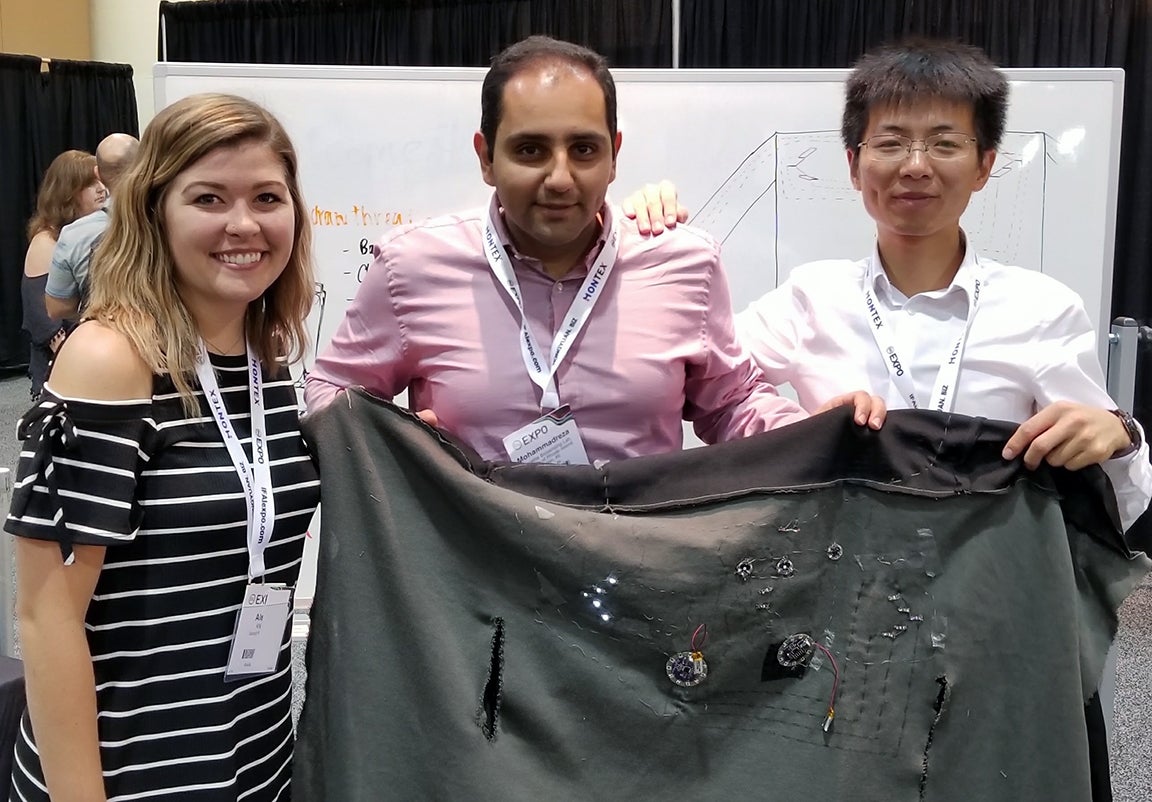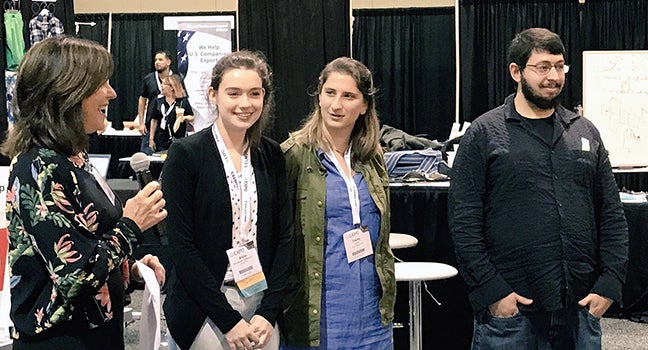KINGSTON, R.I.—Oct. 17, 2017—Two University of Rhode Island students won top awards at a national smart textiles hackathon—one for a toy to help autistic children, the other for a motorcycle jacket.
Joshua Gyllinsky and his team won first place in the E-Textiles Hackathon Design Challenge at the Industrial Fabrics Association International Expo last month in New Orleans. Mohammadreza Abtahi and his team won second place.
Competitors from throughout the country had 12 hours over two days to conceptualize, design and build products using smart textiles with commercial value. Teams could only use materials and tools offered at the event.
Gyllinsky, who is pursuing his master’s degree in computer science and statistics and will seek his doctorate in URI’s Electrical, Computer and Biomedical Engineering Department, was on the first place team that created a toy—a fabric cube—for autistic children who are nonverbal. Sections of the cube heat up when touched, giving the children a strong sensory experience. The next version could be programmed with lights, sound and even smell.
“Our toy had flexible LED fiber lights, heated e-textile thread and other new, pre-production e-textile products available to us,” says Gyllinsky. “It took two days to develop, but it will take us longer to create a second version.”

Abtahi, who is pursuing his doctorate in the Electrical, Computer and Biomedical Engineering Department, was on the team that finished second for creating a smart motorcycle jacket that makes biking safer at night. LED light up on the back of the jacket and the sleeves.
“We developed a smart jacket for bikers that alerts drivers on the street,” says Abtahi. “We used microcontrollers and different kinds of sensors to turn on LEDs as left or right turn indicators, a stop sign and a flashing signal. All the sensors and LEDs were sewn to the fabric by conductive threads instead of wires, and the two-layer design of the jacket covers all the materials, making it look like a regular jacket.”
Gyllinsky’s team shared a prize of $1,500, and Abtahi and his teammates split $500 for second place.
“I’ve been able to apply my knowledge of electrical engineering to fabrics and textiles,” says Abtahi. “In a hackathon you need to act fast and be confident that what you’re making will work correctly. My experience in URI’s Wearable Biosensing Lab has instilled that confidence.”
The other competitors on Gyllinsky’s team were Tracey Weisman, a researcher at KNITit, a 3D knitting company in Grand Rapids, Mich., and Aisha Hakam, a high school student and aspiring mechanical and textile engineer. Abtahi’s team included Huipu Gao, a graduate student in polymer, fiber and textile science at the University of Georgia, and Alexis Troxell, a designer with Knitit.
Kunal Mankodiya, assistant professor of biomedical engineering and a hackathon advisor, was pleased with the URI students’ win.
“Josh and Mohammadreza have made fabulous progress with smart textiles,” he says. “They have great enthusiasm for collaboration and innovation. I’m very glad they showed their unique capabilities and brought our University a new recognition in smart textiles at a national competition. I truly believe our students nurture big ideas and have the courage to pursue them.”

